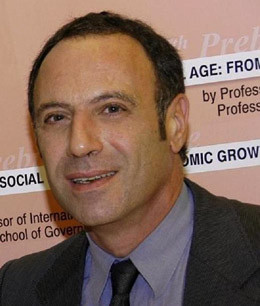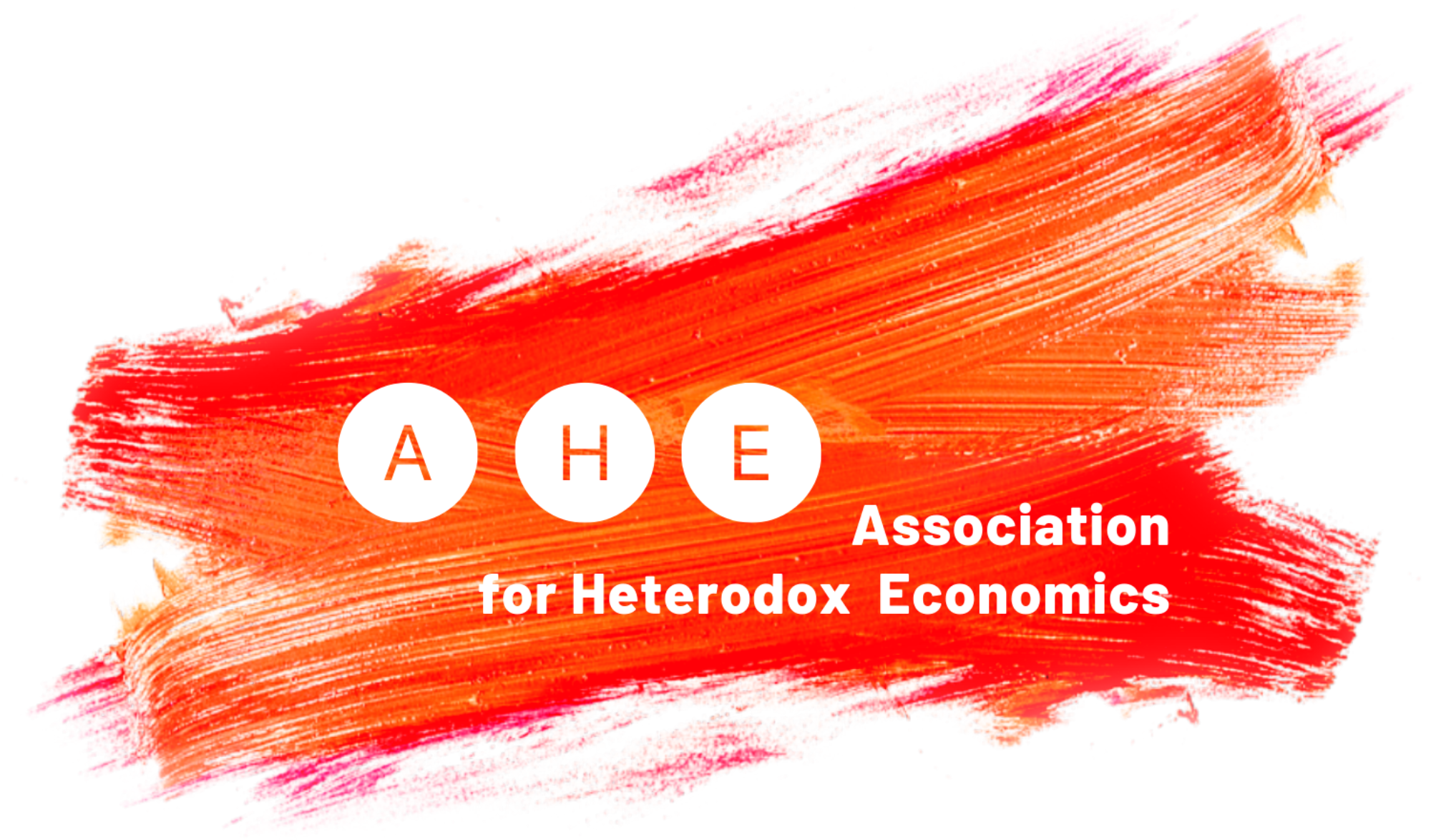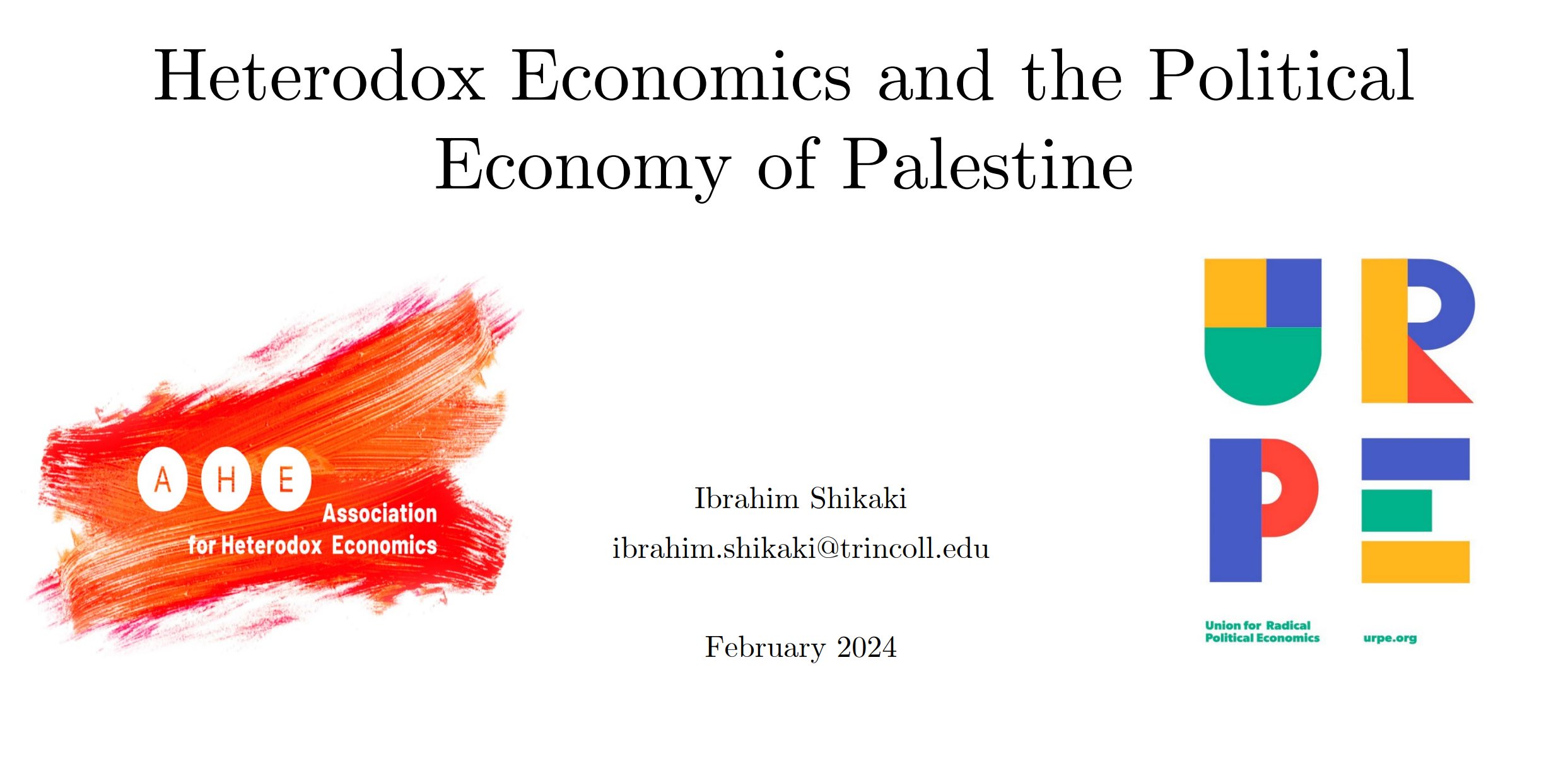Webinar Recording – Political Economy of Palestine
.
.
Webinar Recording: Heterodox Economics and the Political Economy of Palestine
In collaboration with the Union for Radical Political Economy (URPE)
Feb 19th 2024
.
Heterodox economics crucially involves uncovering and challenging unequal power relations, including those related to class, colonialism, imperialism, race and gender. AHE has expressed its unwavering solidarity with the Palestinian people that are facing Israeli occupation and an ongoing genocidal war (see AHE’s and URPE’s 2023 statements on Palestine). It is the task of us as critical scholars to expose and challenge the power relations that support oppressive structures and stand on the side of the oppressed.
At the moment media reporting on Palestine is heavily dominated by Zionist narratives and the focus is only on the immediate humanitarian emergency. This webinar takes an alternative heterodox and radical political economy perspective on Palestine, both from a scholarly and activist point of view. It explores the historical and socio-economic reasons for the current genocide, the possible role of heterodox economics in studying the Palestinian economy and society, and the likely paths going forward
.
Speaker:
Dr Ibrahim Shikaki, Assistant Professor of Economics, Trinity College, US
.
Discussants:
Raja Khalidi, Director-General of the Palestine Economic Policy Research Institute (MAS), Palestine
Rafeef Ziadah, Senior Lecturer in Politics and Public Policy, King’s College, London
.
Hosts:
Ingrid Kvangraven (King’s College, London, UK)
Sirisha Naidu (University of Missouri-Kansas City, USA)
.
Slides and webinar recording:
Click here to download the presentation slides from this webinar
.
.
.
.

Ibrahim Shikaki is assistant professor of economics at Trinity College, Hartford, CT. He earned his PhD from the New School for Social Research, and held teaching and research positions in Palestine, Italy and the US. Ibrahim teaches courses in macroeconomics, inequality, growth and history of thought, and his research revolves around using heterodox economics to study the Political economy of Palestine. His publications include a journal article on structural modelling of the Palestinian economy, a book chapter on the political economy of dependency and class formation in Palestine, and a Foreign Policy piece on the dangers of “economic peace”.

Raja Khalidi is the Director General of the Palestine Economic Policy Research Institute (MAS). Khalidi had been the Research Coordinator at MAS since 2016. He previously worked at the United Nations Conference on Trade and Development (UNCTAD) from 1985 to 2013, and was the Coordinator of its Program of Assistance to the Palestinian people from 2000 to 2006. He spent his last 5 years at UNCTAD as the head of the Office of the Director of the Division of Globalization and Development Strategies, which led UNCTAD’s response to the global economic crisis and its participation in the G-20 process. He was also a consultative member of the Welfare Association (Taawon), a founding member of the Family Relief Fund in Palestine (Geneva), and a member of the MAS Board of Trustees from 2007 to 2013.

Rafeef Ziadah is Senior Lecturer in Politics and Public Policy, King’s College, London as well as a spoken word artist and human rights activist. She holds a PhD in Politics from York University, Canada. Her research centers on the production of interdisciplinary scholarship that falls into three thematic areas: infrastructures and logistics, gender and feminism, race and racialisation. Her recent research is broadly concerned with the political economy of maritime infrastructures and logistics, with a particular focus on the Middle East and East Africa. She has worked as researcher and campaigns organizer with a number of refugee rights and anti-poverty NGOs.
.
.
.

